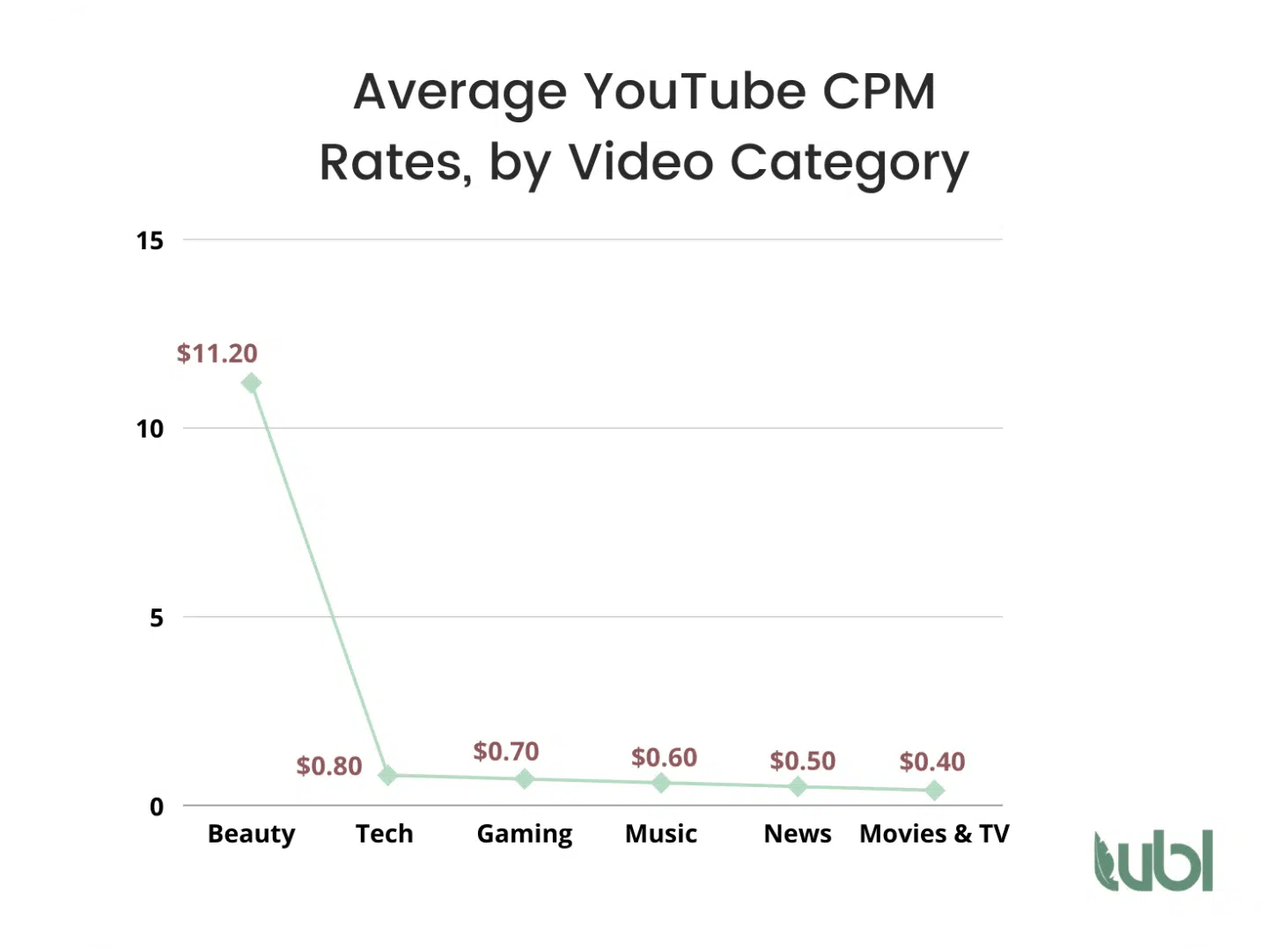In the ever-evolving world of digital content creation, understanding the financial aspects of platforms like YouTube is crucial for success. One of the key metrics that content creators and advertisers alike focus on is the Cost Per Mille (CPM), which indicates how much advertisers are willing to pay for every 1,000 impressions of their ads. Knowing the average CPM for YouTube can help creators effectively strategize their monetization efforts and optimize their content to attract more viewers and higher earnings. This article delves into the intricacies of YouTube's average CPM, exploring its implications, variations, and how creators can leverage this knowledge to enhance their revenue streams.
As YouTube continues to grow as a primary platform for video content consumption, the importance of understanding its monetization model becomes even more pronounced. With millions of creators and diverse niches, the CPM can fluctuate significantly based on various factors, including audience demographics, content type, and time of year. This fluctuation makes it vital for creators to stay informed about the current trends in CPM rates, enabling them to set realistic expectations for their earnings and make informed decisions regarding their content strategies.
In this guide, we will explore what affects the average CPM for YouTube, how creators can increase their CPM, and what the future may hold for monetization on this platform. Whether you are a seasoned content creator or just starting your YouTube journey, understanding the average CPM will equip you with the knowledge needed to navigate the financial landscape of digital content effectively.
What is CPM and Why is it Important for YouTube Creators?
Cost Per Mille (CPM) is a crucial metric in the advertising industry, representing the cost an advertiser pays for 1,000 ad impressions. For YouTube creators, this metric is essential as it directly impacts their earnings from ad revenue. Understanding CPM helps creators gauge the effectiveness of their content and its appeal to advertisers. A higher CPM typically indicates that advertisers find the audience valuable, leading to increased revenue opportunities for creators.
How is the Average CPM for YouTube Calculated?
The average CPM for YouTube is calculated based on several factors, including:
- Audience demographics: Different age groups and locations can attract varying CPM rates.
- Content niche: Certain niches, such as finance or technology, often command higher CPMs due to increased advertiser competition.
- Seasonality: CPM rates can fluctuate throughout the year, with higher rates generally observed during peak advertising seasons like holidays.
- Ad formats: The type of ads used (display, overlay, skippable video ads) can also influence CPM rates.
What is the Current Average CPM for YouTube?
The average CPM for YouTube can vary widely, but recent estimates suggest it ranges from $1 to $20 depending on the factors mentioned earlier. For many creators, a typical CPM falls between $4 and $10, but those in lucrative niches may see significantly higher rates. As the digital advertising landscape continues to evolve, staying updated on these averages is essential for maximizing revenue.
What Factors Influence the Average CPM for YouTube?
Several elements can impact the average CPM for YouTube, including:
- Content Quality: High-quality, engaging content can attract more viewers, leading to higher CPM.
- Audience Engagement: Channels with loyal and interactive audiences can command better advertising rates.
- Geographic Location: Viewers from countries with higher purchasing power often result in higher CPM rates.
- Ad Relevance: The relevance of ads to the content being viewed can lead to better performance and higher CPM.
How Can You Increase Your Average CPM for YouTube?
Creators can take several steps to potentially increase their average CPM:
- Targeting specific niches known for higher CPM rates.
- Improving video quality and production values to enhance viewer engagement.
- Utilizing SEO strategies to increase video visibility and attract a larger audience.
- Experimenting with different ad formats and placements to find what works best for their content.
What are the Best Practices for Maximizing YouTube Revenue?
To maximize YouTube revenue, creators should consider the following best practices:
- Create a content calendar to maintain consistency in uploads.
- Engage with your audience through comments and community posts.
- Utilize analytics tools to track performance and adjust strategies accordingly.
- Collaborate with other creators to reach new audiences.
What is the Future of YouTube CPM Rates?
As digital advertising continues to evolve, so too will CPM rates on YouTube. Factors such as advances in technology, changes in viewer behavior, and shifts in advertising strategies will all play a role in shaping future CPM trends. Creators who stay informed and adaptable will be better positioned to thrive in this dynamic environment.
How Does YouTube's Monetization Policy Affect CPM?
YouTube's monetization policy can significantly impact CPM rates. Creators must adhere to YouTube's guidelines to be eligible for monetization. Violations can lead to demonetization, which can drastically reduce earnings. Understanding these policies and ensuring compliance is crucial for maintaining a steady income stream.
Conclusion: Navigating the Average CPM for YouTube
Understanding the average CPM for YouTube is vital for creators looking to monetize their content effectively. By considering the various factors that influence CPM, exploring strategies to increase earnings, and staying informed about trends, creators can optimize their revenue potential on the platform. As the landscape of digital advertising continues to change, adaptability and knowledge will be key in navigating the ever-shifting waters of YouTube monetization.
Zach Edey’s Father: The Man Behind The Rising Star
Understanding Participle Phrase Examples For Effective Communication
Exploring The Allure Of Hailey Van Lith Images

YouTube Ads Benchmarks (2021) LaptrinhX / News

How to Calculate (and Increase) Your YouTube CPM

YouTube Ads Cost Formats, Rates, Pricing Models, ROI WBL